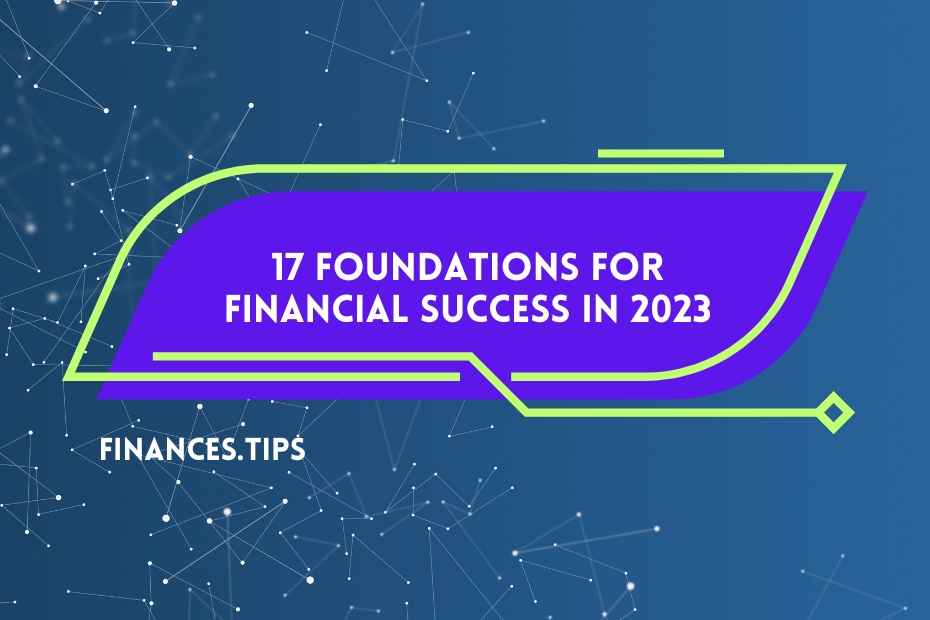Basic personal finance encompasses various aspects of managing money, including making money, saving money, building wealth, and protecting assets.
By understanding the key principles and implementing effective strategies, you can gain control over your finances and work towards achieving your financial goals.
Managing money effectively is an essential skill that everyone should possess.
Whether you’re a recent graduate starting your career or an experienced professional looking to secure your financial future, understanding the basics of personal finance is crucial.
In this comprehensive guide, we will explore the importance of personal finance and provide practical advice on how to optimize your financial situation.
Understanding Basic Personal Finance
What is Personal Finance?
Personal finance refers to the management of one’s financial resources.
It involves activities such as budgeting, tracking spending, tax planning, and estate planning.
Whether it’s handling day-to-day expenses or making long-term investment decisions, personal finance encompasses all the necessary steps to ensure financial well-being.
Before diving into the practical aspects of personal finance, it’s important to have a clear understanding of what it entails.
Personal finance refers to the management of one’s financial resources, encompassing a wide range of activities aimed at achieving financial stability and success.
It involves making informed decisions about how to earn, spend, save, invest, and protect your money.
Budgeting: The Foundation of Personal Finance
One of the key components of personal finance is budgeting.
A budget serves as a roadmap for your financial journey, helping you allocate your income towards different expenses and savings goals.
By creating a budget, you gain a clear overview of your income and expenses, enabling you to make conscious choices about how you spend your money.
Budgeting allows you to identify areas where you can cut back on unnecessary expenses and save more effectively.
Tracking Spending: Awareness is Key
To gain a comprehensive understanding of your financial situation, it’s essential to track your spending.
Tracking your expenses allows you to identify patterns and habits that may be impacting your financial health.
There are various tools and apps available that can help you categorize and monitor your expenses, giving you insights into where your money is going.
By being aware of your spending patterns, you can make adjustments and ensure that your money is being used wisely.

The Importance of Personal Finance
Managing money can be overwhelming, and many individuals feel intimidated by financial decisions.
However, personal finance is crucial for achieving financial security and maximizing your resources.
By focusing on four essential stages—making money, saving money, building wealth, and protecting assets—you can gain confidence and work towards a secure financial future.
Managing money effectively can seem overwhelming, and many individuals feel intimidated by the complexities of financial decisions.
However, understanding and implementing personal finance principles are crucial for achieving financial security and maximizing your resources.
Let’s explore the importance of personal finance in more detail.
Financial Security and Peace of Mind
One of the primary benefits of personal finance is the attainment of financial security.
By actively managing your money, you can build a safety net to protect yourself and your loved ones from unexpected financial hardships.
Personal finance enables you to create an emergency fund, which serves as a cushion during times of job loss, medical emergencies, or other unforeseen circumstances.
This financial security provides peace of mind, knowing that you have the means to handle unexpected expenses without falling into debt.
Maximizing Your Resources
Personal finance empowers you to make the most of your financial resources.
By focusing on the four essential stages of personal finance—making money, saving money, building wealth, and protecting assets—you can optimize your financial situation and achieve your goals.
Through effective income management, you can increase your earning potential and explore opportunities for additional income streams.
By saving money and practicing smart spending habits, you can stretch your dollars further and make progress toward your financial objectives.
Building wealth through investments and asset growth allows you to create long-term financial stability and enjoy the benefits of compound interest over time.
Financial Freedom and Flexibility
Implementing personal finance strategies provides you with financial freedom and flexibility.
By managing your money wisely, you gain control over your financial decisions and can choose how to allocate your resources.
Personal finance empowers you to make informed choices about major purchases, such as buying a home or a car, and plan for significant life events like education, retirement, or starting a business.
With a solid financial foundation, you have the freedom to pursue your passions, take calculated risks, and live life on your own terms.

Making Money
Net Income
Understanding your net income, which is the amount you take home after deductions, is vital for effective budgeting.
By knowing your true income, you can make informed financial decisions and avoid overspending.
- Accurate Budgeting
Budgeting is the cornerstone of personal finance, and it allows you to allocate your income towards various expenses and savings goals.
However, to create an accurate budget, it’s important to base it on your net income rather than your gross income.
Your net income reflects the actual amount of money you have available to cover your living expenses, save, invest, and enjoy discretionary spending.
By knowing your net income, you can set realistic spending limits and make informed financial decisions that align with your true earning potential.
- Avoiding Overspending
Knowing your net income helps you avoid overspending and living beyond your means.
It’s common for individuals to mistakenly believe that they can afford certain luxuries or higher expenses based on their gross income.
However, without considering the deductions that come out of their paycheck, they may end up overspending and accumulating debt.
By focusing on your net income, you gain a clear understanding of your financial limitations and can make mindful spending choices that align with your available resources.
- Setting Financial Goals
Understanding your net income plays a crucial role in setting realistic financial goals.
Whether it’s saving for a down payment on a house, paying off debt, or planning for retirement, your net income provides a more accurate picture of what you can afford to allocate toward your goals.
Setting goals based on your net income ensures that they are achievable and realistic within your financial means, allowing you to make steady progress toward your objectives without undue financial strain.
Side Income
Exploring additional income opportunities can help boost your financial situation.
Discover legitimate ways to earn extra money, both online and offline, and consider the long-term potential of each option.
- Expanded Financial Potential
Having multiple streams of income can increase your overall financial potential.
Relying solely on a single source of income may leave you vulnerable to financial instability in the event of job loss or unexpected expenses.
Side income provides an additional cushion, allowing you to diversify your earnings and reduce financial risk.
By exploring and leveraging side income opportunities, you can expand your earning potential and enhance your financial stability.
- Flexibility and Independence
One of the advantages of side income is the flexibility it offers.
Many side income options allow you to work on your own terms, whether it’s freelancing, consulting, or starting a small business.
This flexibility allows you to pursue your passion, utilize your skills and expertise, and create a work schedule that fits your lifestyle.
Side income can provide a sense of independence and empowerment as you take control of your financial destiny.
- Online and Offline Opportunities
The modern digital landscape has opened up a plethora of side income opportunities, both online and offline.
Online platforms offer various avenues to earn extra money, such as freelancing, virtual assistance, e-commerce, content creation, and online tutoring.
Offline opportunities include part-time jobs, gig work, renting out assets, or offering services in your local community.
Explore the options that align with your skills, interests, and available time, and consider the long-term potential of each option.

Managing Money
Banking
Choosing the right bank accounts can minimize costs and maximize savings.
Learn about checking accounts, savings accounts, and certificates of deposit to make informed decisions that align with your financial goals.
Anyway, when it comes to managing your money, choosing the right banking options can have a significant impact on minimizing costs and maximizing savings.
Understanding different types of bank accounts empowers you to make informed decisions that align with your financial goals.
Let’s explore the importance of banking and the key accounts you should consider.
The Importance of Banking
- Secure Storage of Funds
Banks provide a secure place to store your money.
By keeping your funds in a bank account, you reduce the risk of loss or theft compared to holding large sums of cash.
Banks also offer deposit insurance, which protects your money up to certain limits in case the bank faces financial difficulties.
- Convenient Transactional Services
Banks offer various services, such as checking accounts, that enable you to easily manage your day-to-day financial transactions.
Features like online banking, mobile banking, debit cards, and electronic transfers provide convenience and accessibility to your funds.
- Access to Credit
Establishing a banking relationship can open doors to credit options such as personal loans, credit cards, or mortgages.
These credit facilities can be valuable for major purchases, emergencies, or building credit history.
Renting versus Buying a Home
Deciding whether to rent or buy a home is a significant financial consideration.
Use tools and calculators to evaluate the best option based on your circumstances and long-term plans.
Renting a home involves paying a monthly rent to a landlord or property management company in exchange for the right to occupy the property.
Here are some points to consider:
- Flexibility
Renting provides greater flexibility in terms of mobility.
If you anticipate moving frequently due to career changes, personal circumstances, or the desire for a change of scenery, renting allows you to do so without the burden of selling a property.
- Lower Upfront Costs
Renting typically requires lower upfront costs compared to buying a home.
While you may need to pay a security deposit and possibly the first and last month’s rent, you are not responsible for down payments, closing costs, or ongoing maintenance and repairs.
- Limited Control and Long-Term Costs:
As a renter, you have limited control over the property and may face restrictions on making modifications or personalizing the space.
Additionally, rental costs can increase over time due to factors such as inflation, market conditions, or changes in the rental agreement.

Buying a Home
Buying a home involves purchasing a property and taking on responsibilities such as mortgage payments, maintenance, and property taxes.
Here are some points to consider:
- Long-Term Investment
Buying a home can be a long-term investment that allows you to build equity over time.
As you make mortgage payments, you gradually increase your ownership stake in the property, which may provide financial benefits in the future.
- Stability and Control
Homeownership offers stability and the ability to customize and personalize your living space.
You have the freedom to make renovations, modifications, and improvements according to your preferences.
- Financial Considerations
Buying a home involves upfront costs such as a down payment, closing costs, and ongoing expenses like property taxes, homeowners insurance, and maintenance.
It’s crucial to evaluate your financial readiness and ensure that you can comfortably afford these expenses.
Building a Budget
Creating and maintaining a budget is essential for effective financial management.
Explore different budgeting systems and strategies to gain control over your spending habits and prioritize your financial goals.
The Importance of Budgeting
- Financial Awareness
A budget gives you a clear picture of your financial situation.
It helps you understand how much money is coming in, how much is going out, and where it’s being spent.
This awareness allows you to identify areas where you can cut back, save more, or reallocate funds toward your financial goals.
- Spending Control
Budgeting helps you control your spending habits. By tracking your expenses and setting limits within different spending categories, you can avoid impulsive purchases and ensure that your money is allocated in alignment with your priorities.
- Goal Prioritization
A budget helps you prioritize your financial goals.
Whether you’re saving for a down payment on a house, paying off debt, or planning for retirement, a budget allows you to allocate funds towards these goals systematically.
It enables you to track your progress and make adjustments as needed to stay on track.
- Emergency Preparedness
A well-structured budget includes provisions for emergency funds.
By setting aside money for unexpected expenses, you can build a financial safety net and mitigate the impact of unforeseen circumstances.
Creating a Budget
- Track Your Income and Expenses
Begin by tracking your income from all sources, including salaries, investments, and side income.
Then, document your monthly expenses, categorizing them into fixed expenses (such as rent, utilities, and loan payments) and variable expenses (such as groceries, entertainment, and dining out).
- Set Financial Goals
Determine your short-term and long-term financial goals.
This could include saving for a specific purchase, paying off debt, or building an emergency fund.
Assign each goal a timeline and a monetary target.
- Choose a Budgeting System
Explore different budgeting systems to find one that suits your preferences and lifestyle.
Popular systems include the envelope method, zero-based budgeting, and the 50/30/20 rule.
These systems provide structure and guidelines for allocating your income across different expense categories.
- Allocate Your Income
Based on your income, expenses, and financial goals, allocate your income to different categories.
Ensure that your essential expenses are covered, savings goals are met, and discretionary spending is managed responsibly.
- Review and Adjust
Regularly review your budget to track your progress, identify areas where adjustments are needed, and make necessary changes.
Life circumstances may change, requiring you to modify your budget accordingly.

Saving Money
Interest
Understanding how interest works can help you make informed borrowing and lending decisions.
Explore the concept of interest and its impact on your finances to optimize your financial well-being.
Understanding the concept of interest is crucial for making informed borrowing and lending decisions, as it has a significant impact on your finances.
Let’s look into the importance of interest and its implications for your financial decisions.
What is Interest?
Interest is the cost of borrowing money or the compensation received for lending money.
It is typically expressed as a percentage of the principal amount and accrues over a specified period.
Understanding the following key aspects of interest is essential:
- Principal: The principal is the initial amount of money borrowed or invested.
- Interest Rate: The interest rate is the percentage charged or earned on the principal amount. It determines the cost of borrowing or the return on investment.
- Time Period: The time period refers to the duration over which interest is calculated, typically measured in years, months, or days.
Types of Interest
- Simple Interest
Simple interest is calculated solely on the original principal amount.
It does not take into account any interest earned or paid in previous periods.
Simple interest is commonly used for short-term loans and straightforward interest-bearing savings accounts.
- Compound Interest
Compound interest is interest calculated on the initial principal as well as any previously accumulated interest.
It allows your money to grow exponentially over time.
Compound interest is typically utilized for long-term investments and loans.
Implications of Interest
- Borrowing
When borrowing money, interest is the additional cost you incur for using someone else’s funds.
Understanding the interest rate and repayment terms is crucial for assessing the affordability of the loan and determining the total cost over time.
Comparing interest rates and repayment options from different lenders can help you secure the most favorable terms.
- Saving
When saving or investing money, interest is the return you earn on your funds.
By choosing accounts or investment options that offer competitive interest rates, you can maximize your earnings over time.
Compound interest can significantly boost your savings, as your interest earns interest itself.
- Debt Management
Interest plays a vital role in debt management.
Making timely payments and reducing outstanding balances can minimize the amount of interest paid over the life of a loan.
Consider strategies such as debt consolidation or refinancing to potentially lower interest rates and save on interest expenses.
Optimizing Your Financial Well-Being
- Comparison Shopping
Whether you’re borrowing or saving, compare interest rates and terms from different financial institutions or lenders.
This allows you to identify the most favorable options and potentially save money.
- Paying Off High-Interest Debt
Prioritize paying off high-interest debt to reduce interest expenses and improve your financial situation.
Consider strategies such as the debt avalanche or debt snowball method to accelerate debt repayment.
- Investing in the Long Term
Take advantage of compound interest by investing for the long term.
Start early, contribute regularly, and consider investment options such as stocks, bonds, or retirement accounts to harness the power of compounding.
Emergency
Fund Building an emergency fund provides a safety net for unexpected expenses.
Learn the importance of setting aside money for emergencies and discover effective strategies for saving towards this fund.
Whether you’re taking out a loan, opening a savings account, or considering investment opportunities, grasping how interest works can help you optimize your financial well-being.
Let’s dig into the importance of interest and its implications for your financial decisions.
What is Interest?
Interest is the cost of borrowing money or the compensation received for lending money.
It is typically expressed as a percentage of the principal amount and accrues over a specified period.
Understanding the following key aspects of interest is essential:
- Principal: The principal is the initial amount of money borrowed or invested.
- Interest Rate: The interest rate is the percentage charged or earned on the principal amount. It determines the cost of borrowing or the return on investment.
- Time Period: The time period refers to the duration over which interest is calculated, typically measured in years, months, or days.

Health Savings Accounts
Health savings accounts offer a tax-advantaged way to save for medical expenses.
Evaluate whether you qualify for an HSA and understand its potential benefits for your financial situation.
Saving for Specific Goals
Whether it’s saving for a down payment on a home or funding a college education, setting specific savings goals can help you stay focused and motivated.
Explore strategies and resources to save effectively for your unique financial objectives.
Maximizing Your Credit Cards
Choosing the Right Credit Card
Finding the best credit card for your spending habits and credit situation is essential.
Discover how to assess credit card options and select the one that aligns with your financial needs.
Vehicle Loans
Find guidance on obtaining the right vehicle loan for your needs and explore options if you encounter difficulties in the borrowing process.
Student Loans
Navigate the complex landscape of student loans by understanding refinancing options, lender selection, and payment plans.
Empower yourself to make informed decisions about your student loan debt.
Investing and Building Wealth
Investing is a key aspect of personal finance that can help grow your wealth over time.
Here are some important considerations for investing:
- Set Financial Goals: Determine your short-term and long-term financial goals, such as retirement, buying a home, or funding education. Your goals will shape your investment strategy.
- Diversify Your Portfolio: Spreading your investments across different asset classes, such as stocks, bonds, real estate, and mutual funds, helps mitigate risk and maximize potential returns.
- Understand Risk Tolerance: Assess your risk tolerance, which refers to your ability to withstand market volatility and potential investment losses. Your risk tolerance will guide your asset allocation decisions.
- Seek Professional Advice: Consider consulting a financial advisor or investment professional who can provide personalized guidance based on your financial situation and goals.
- Educate Yourself: Take the time to educate yourself about different investment options, strategies, and market trends. This knowledge will empower you to make informed investment decisions.
- Take Advantage of Tax-Advantaged Accounts: Explore tax-advantaged retirement accounts such as 401(k)s, IRAs, and HSAs, which offer tax benefits and can help you build wealth more efficiently.
Protecting Your Assets
Protecting your assets is a critical aspect of personal finance.
Consider the following strategies to safeguard your financial well-being:
- Insurance: Evaluate your insurance needs and ensure you have appropriate coverage for your health, life, home, and vehicles. Insurance provides a safety net in case of unexpected events.
- Estate Planning: Develop an estate plan that includes a will, power of attorney, and healthcare directive. Estate planning ensures your assets are distributed according to your wishes and helps minimize potential taxes and legal complications.
- Emergency Preparedness: Establish an emergency plan and build an emergency fund to protect yourself and your family in the event of a financial setback or natural disaster.
- Identity Protection: Safeguard your personal and financial information by practicing good cybersecurity habits, such as using strong passwords, regularly monitoring your accounts, and being cautious of phishing attempts.
Conclusion
In summary, we have embarked on an enlightening journey through the realm of basic personal finance, demystifying its fundamental concepts and presenting you with the ultimate guide to making the most of your money.
By delving into essential topics such as budgeting, saving, investing, and debt management, we have equipped you with the knowledge and tools necessary to navigate the financial landscape with confidence.
Understanding the significance of establishing a solid financial foundation, we have emphasized the importance of setting realistic goals, tracking expenses, and creating a budget tailored to your needs.
Armed with this knowledge, you are empowered to take control of your finances and shape a prosperous future.
Moreover, we have explored the art of saving intelligently, uncovering effective strategies to build an emergency fund, save for short-term and long-term goals, and harness the power of compound interest. By implementing these techniques, you can cultivate a habit of saving and fortify your financial resilience.
The intricacies of investing have also been unraveled, illustrating the potential for growth and wealth accumulation through informed investment decisions.
We have discussed various investment avenues, including stocks, bonds, mutual funds, and real estate while emphasizing the significance of diversification and risk management in constructing a robust investment portfolio.
Furthermore, we have shed light on the intricacies of managing debt responsibly, presenting strategies to reduce and eliminate debt while safeguarding your credit score.
By mastering the art of debt management, you can liberate yourself from financial burdens and lay the groundwork for long-term financial freedom.
Remember, the journey to financial well-being is a continuous process that demands discipline, patience, and adaptability.
As you embark on this expedition, always seek to expand your financial knowledge, stay updated on the latest trends, and adapt your strategies to ever-changing circumstances.
Armed with this comprehensive guide to basic personal finance, you possess the tools to maximize your money, achieve your financial aspirations, and ultimately pave the way toward a more prosperous and secure future.
Embrace these principles, take action, and unlock the true potential of your financial journey.



